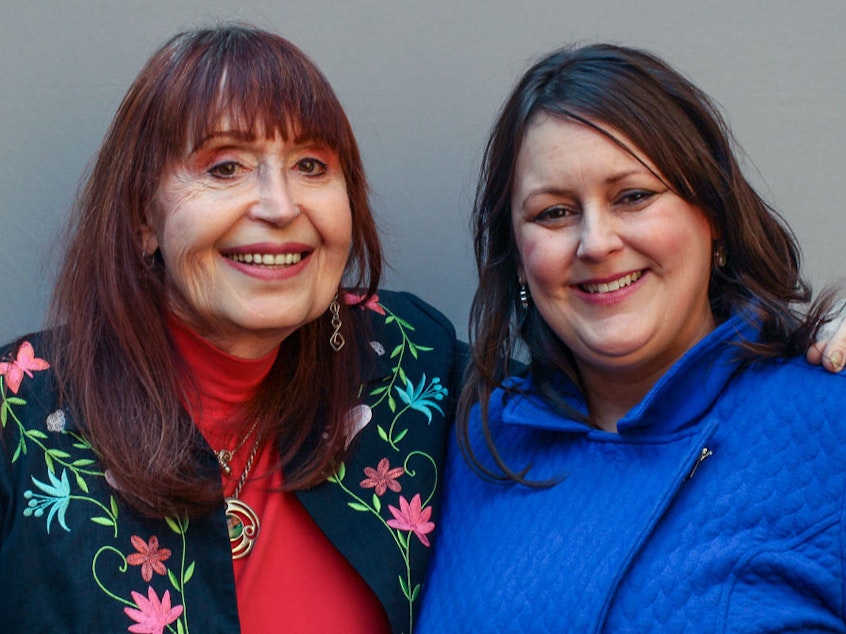Coming Out As Transgender When There Was No Language To Describe It

When Elizabeth Coffey-Williams first came out to her family as transgender in the late 1960s, the language of gender identity wasn't what it is today.
"A lot of the words that they have today, like transgender and non-binary, they didn't have them," Elizabeth, who was in her early 20s at the time, told her niece Jennifer Coffey in a recent StoryCorps interview.
"All the fruits and nuts were already on the tree, they just hadn't been assigned names," said Elizabeth, now 71. "So, attempting to tell your extraordinarily loving blue-collar parents that you were transgender was tantamount to telling them I was from Jupiter."
Her family lived in Philadelphia, and her parents sent her across town to live with a relative.
"My parents were afraid, well, you know, this might be contagious," Elizabeth said. "And, at that point, my parents were telling the rest of the family that I had just gone."
Sponsored
"That's got to be traumatizing," 42-year-old Jennifer said.
Elizabeth said she didn't see her younger brothers or sister for about five years. "I would call, my mother would let me talk to them on the telephone, but I couldn't come home," she said.
By then, Elizabeth had moved to Baltimore, where she heard that nearby Johns Hopkins Hospital had begun performing gender confirmation surgeries.
She turned up at the clinic ready to sign up for the procedure, which was then known as "sex reassignment surgery."
"I pushed open those big doors and said, 'Hi, I'm here,' " Elizabeth recalled.
Sponsored
But it wasn't that simple.
"They said, 'That's not how it works. We have a whole program that you have to go through.' "
The program included psychological exams and evaluations.
"And I thought, 'I'm not really here for a shrink, I just want a plumber.' "
Elizabeth did complete the program, and in 1972, successfully underwent the surgery.
Sponsored
"Later on, my mother sat the kids down and told them the truth — the big secret," Elizabeth told Jennifer.
After her siblings learned about their sister, Elizabeth got an unexpected knock on her door.
Her little brother, Billy, about 11 years old then, was standing in the doorway.
"He just looked up at me and said, 'Hi, it's me.' "
A tearful Elizabeth hugged her smiling brother. "Was he ashamed of me?" she thought. No, she said, "he wanted me back."
Sponsored
"When I opened that door, all I can say is it was like my heart was exploding, and I was going to have family again," she recalled.
Her brother's visit was a big step for her family, she said, who now recognize her as a woman.
"It made me feel wanted, and it made me feel loved. That meant more to me than anything had meant in a long time," she said.
Today, Elizabeth lives in downtown Philadelphia in an LGBT-friendly building for seniors, where she's surrounded by people who accept her, too.
Audio produced for Morning Edition by Jud Esty-Kendall and Afi Yellow-Duke.
Sponsored
StoryCorps is a national nonprofit that gives people the chance to interview friends and loved ones about their lives. These conversations are archived at the American Folklife Center at the Library of Congress, allowing participants to leave a legacy for future generations. Learn more, including how to interview someone in your life, at StoryCorps.org. [Copyright 2019 NPR]

